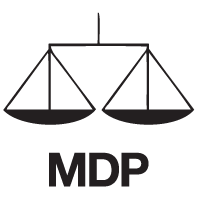Reference No: 79/07/2012
14 July 2012
Top UN Human Rights Body Criticizes “Systematic Torture”, “Systematic Assaults on Journalists Covering Anti-Government Protests”
The United Nations Human Rights Committee, the international treaty body mandated to ensure compliance with the International Covenant on Civil and Political Rights (ICCPR), today slammed the administration of the Maldives’ coup leader, Dr. Mohamed Waheed, for gross and systematic human rights violations committed since the overthrow of the country’s democratically-elected government.
After a two-day dialogue between a government delegation led by the Home Minister, Dr. Mohamed Jameel, and members of the Committee – renowned international human rights experts, the Chair Ms. Zonke Zanele Majodina, in preliminary closing observations, said the Committee is deeply concerned that “torture in the Maldives is not only systematic but systemic”. She noted that at least 2 civil society members in this room have suffered torture in recent months. This is, she said “the worst kind of human rights violation”. “We have heard the Government’s argument that there is no torture now and that mechanisms exist to deal with this but the Committee is not convinced by these arguments” she said. The UN Committee called on the Government to set up an independent commission that is independently funded to investigate and that will result in prosecutions and redress for victims.
On freedom of assembly and expression, the Committee’s preliminary decision was to reject the government’s argument that the use of force since February 7th has been necessary and proportionate. “Allegations of the systematic targeting of journalists covering anti government protests as well as the targeting of people participating in the protests continue” she said.
The Committee also focused attention on the Maldives’ judiciary, which, they contended, requires serious reform. Members of the Committee called for reform of the Judicial Services Commission, and urged the government to consider appointing international judges for an interim period.
During the course of the two-day dialogue, Human Rights Committee members expressed concern that the National Human Rights Commission only had a “B status”, which made significant difference on the ground.
Questions were raised about freedom of expression and assembly, how demonstrations were dispersed, the use of Sharia law, the death penalty and corporal punishment and the link between religion and State, particularly the requirement to be a Muslim in order to have Maldivian nationality. The Committee expressed serious concern about systematic torture and the lack of a mechanism to investigate accusations of torture. Judicial reform, detention facilities, inheritance rights for women and human trafficking were also discussed.
The Committee will now prepare written conclusions and recommendations which will be published before the end of July.
ENDS
Hamid Abdul Ghafoor
Spokesperson, International Affairs
Mobile: +9607778285
Tel: +9603340044


